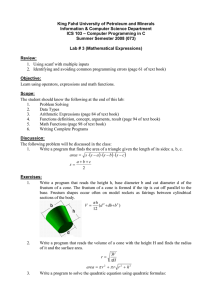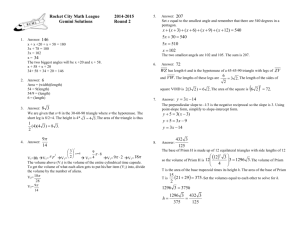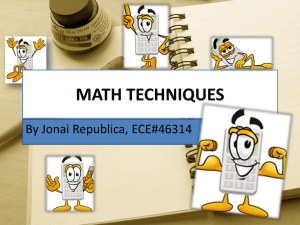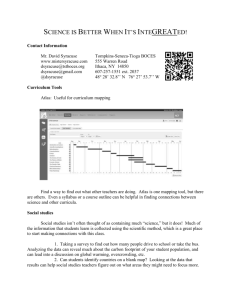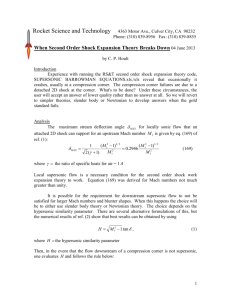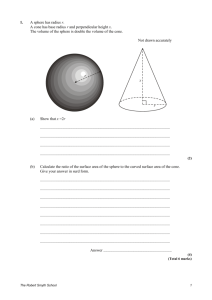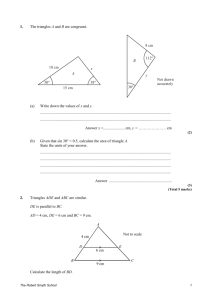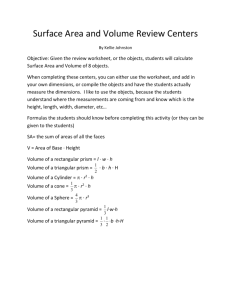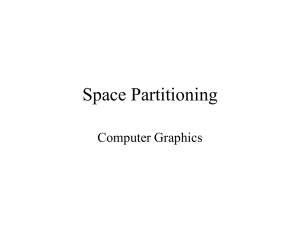Volume of Frustum, doc
advertisement
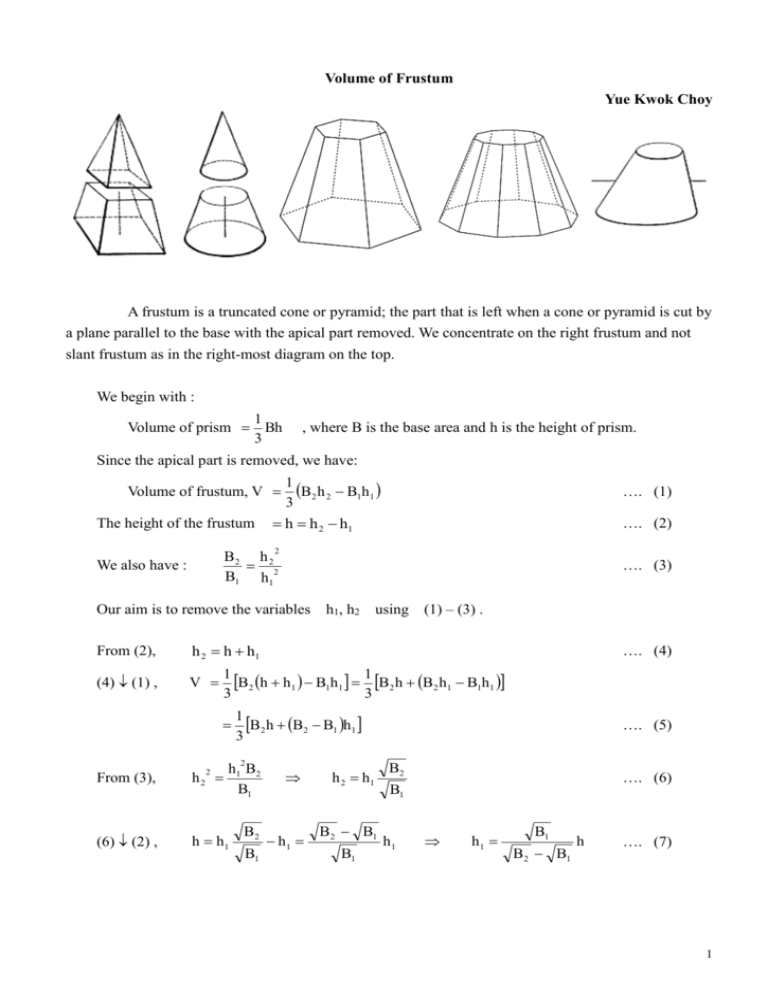
Volume of Frustum Yue Kwok Choy A frustum is a truncated cone or pyramid; the part that is left when a cone or pyramid is cut by a plane parallel to the base with the apical part removed. We concentrate on the right frustum and not slant frustum as in the right-most diagram on the top. We begin with : 1 Volume of prism Bh 3 , where B is the base area and h is the height of prism. Since the apical part is removed, we have: Volume of frustum, V The height of the frustum 1 B2 h 2 B1h1 3 …. (1) h h 2 h1 …. (2) 2 B2 h 2 B1 h12 We also have : …. (3) Our aim is to remove the variables From (2), h 2 h h1 (4) (1) , V h1, h2 using (1) – (3) . …. (4) 1 B2 h h1 B1h1 1 B2 h B2 h1 B1h1 3 3 1 B2 h B2 B1 h1 3 2 h1 B 2 B1 B2 h1 From (3), h2 (6) (2) , h h1 2 B1 h 2 h1 B 2 B1 B1 …. (5) B2 …. (6) B1 h1 h1 B1 B 2 B1 h …. (7) 1 (7) (5) , B1 1 V B2 h B2 B1 3 B2 B1 h 1 B 2 h 3 B2 B1 B2 B1 h B2 B1 B1 1 B2 h B1 3 h B1 B1B 2 B 2 3 B2 B1 h …. (8) From (8), we can derive the followings: (a) Volume of circular cone frustum, V h 2 2 r1 r1r2 r2 3 , where r1 , r2 are the radii of the top and bottom circular bases. (b) Volume of square frustum, V h 2 2 a 1 a 1a 2 a 2 3 , where a1 , a 2 are the sides of the top and bottom square bases. (c) Since the area of equilateral triangle is given by 3 2 a , where a is the side of the triangle, we have: 4 Volume of equilateral triangular frustum, A V h 2 2 a 1 a 1a 2 a 2 16 , where a1 , a 2 are the sides of the top and bottom triangular bases. 2
